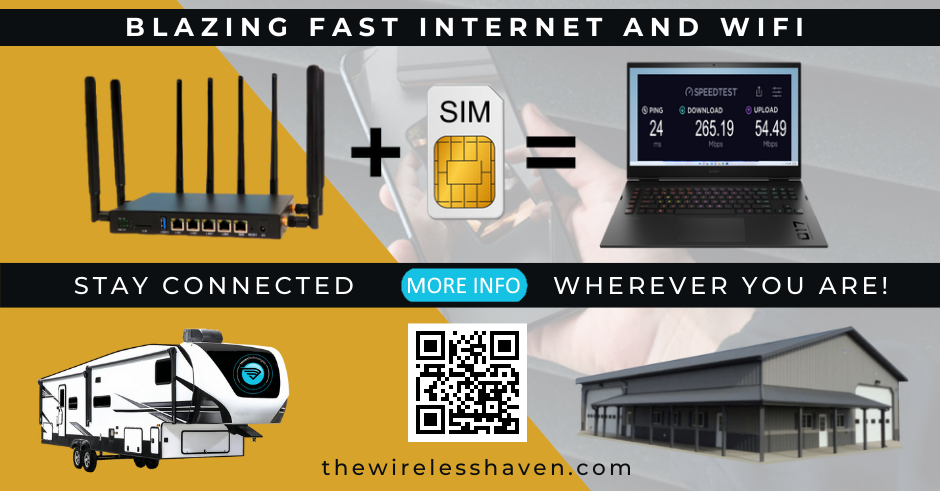RG6 cabling verus RG58
Forum rules
Use the SEARCH function for related topics PRIOR to posting a new topic on the same subject.
Use the SEARCH function for related topics PRIOR to posting a new topic on the same subject.
Re: RG6 cabling verus RG58
Yes RG6 is 75 ohm with lower loss. Which was why i was asking. Im using it with a weboost and was going to connect it directly to a netgear nighthawk. So what issues will you have if you use rg6?
- Didneywhorl
- Posts: 3662
- Joined: Fri Mar 23, 2018 5:37 pm
- Location: USA
- Has thanked: 1379 times
- Been thanked: 770 times
- Contact:
Re: RG6 cabling verus RG58
Make sure the booster is made for connecting directly to a modem or you will blast your hotspot.
The cabling can be 75Ohm for booster systems made for them, but there are no cellular modems or hotspots that I have ever seen that use 75 Ohm. The main reason being the power rating.
Higher ohm cabling creates a higher inductive reactance (sort of like simple electrical resistance), thus creating a greater gain loss, nullifying the point to adding higher gain antennas. The booster systems work with these as they are designed for it, end to end, and can deal with it even when not because they basically brute force amplify the signal anyway. This is why they also get away with using 50+ feet of cheap cables.
Your main things to look for when connecting to a cellular hotspot or modem is 50Ohm cables, as low loss rated as possible per your budget, and as short of cables as possible.
The cabling can be 75Ohm for booster systems made for them, but there are no cellular modems or hotspots that I have ever seen that use 75 Ohm. The main reason being the power rating.
Higher ohm cabling creates a higher inductive reactance (sort of like simple electrical resistance), thus creating a greater gain loss, nullifying the point to adding higher gain antennas. The booster systems work with these as they are designed for it, end to end, and can deal with it even when not because they basically brute force amplify the signal anyway. This is why they also get away with using 50+ feet of cheap cables.
Your main things to look for when connecting to a cellular hotspot or modem is 50Ohm cables, as low loss rated as possible per your budget, and as short of cables as possible.
Re: RG6 cabling verus RG58
The main issue is that rg6 and rg58 have huge signal loss compared to lmr400. In a worst case scenerio based on the linked calculator @100 foot cable length:
https://www.qsl.net/co8tw/Coax_Calculator.htm
lmr400 @ a frequency of 2100 which is band4/66 frequency for downloads you would lose about 6db on rg58 you would loose a whopping 26db.
https://www.qsl.net/co8tw/Coax_Calculator.htm
lmr400 @ a frequency of 2100 which is band4/66 frequency for downloads you would lose about 6db on rg58 you would loose a whopping 26db.
-
Dr-BroadBand
- Posts: 558
- Joined: Wed Sep 23, 2020 8:52 am
- Location: Texas
- Has thanked: 94 times
- Been thanked: 118 times
Re: RG6 cabling verus RG58
The problem with booster are the also Amplify the noise so you’re Signal to noise ratio sucks.
Would be better to put your money in good quality cables and antennas.
It would be helpful if you shared your Signal numbers.
Would be better to put your money in good quality cables and antennas.
It would be helpful if you shared your Signal numbers.
- These users thanked the author Dr-BroadBand for the post:
- Didneywhorl (Sun Oct 10, 2021 3:41 pm)


